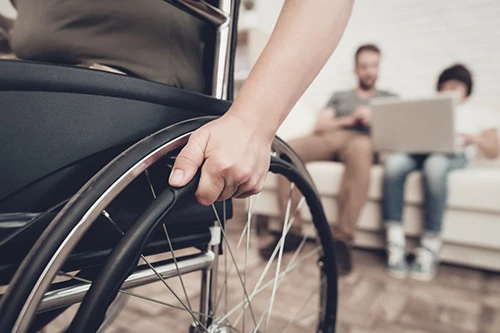Burns are unexpected injuries occurring in a variety of settings, ranging from your favorite restaurant to your own home. In 2016, over 486,000 injuries received medical treatment (American Burn Association). But who is deemed liable in the event you suffer from a burn injury? What types of burn injuries are there? You’ll find the answer to those questions here.
Types of Burns
- First-degree burns. The most common type of burn. These burns only sear the outermost layer – or epidermis – of your skin. These can occur from touching a hot stove for a second or being out in the sun for too long.
- Second-degree burns. Second-degree burns affect both the epidermis and the dermis. Symptoms include blisters, swelling, and red coloration and pain to the touch. There are two types of second-degree burns: superficial, where only a part of the dermis is burned, and deep partial, which penetrates the dermis deeply and may leave permanent discoloration and scarring.
- Third-degree burns. Third-degree burns essentially demolish the epidermis and the dermis. The skin will not be red but instead turn black, yellow, or brown. At this point, the nerve endings are damaged, so you won’t feel the injury.
- Fourth-degree burns. Fourth-degree burns are the most severe type and can potentially kill the victim. It burns all layers of the skin and potentially even muscle and bone.
Causes of Burn Injuries
Most types of burns are as follows:
- Chemical burns. Strong acids and detergents can potentially burn the skin, damaging it if you’re not careful. Burns from bleach is one such example.
- Thermal burns. Flames and anything hot to the touch – heated metal, for instance – can cause skin cells to die.
- Friction burns. Friction burns happen when the skin meets a rough object. Friction burns include asphalt burns (occurring most often in bicycle and motorcycle accidents) and rug burns.
- Cold burns. When the body succumbs to frozen temperatures, it may encounter frostbite, which can cause burning.
- Radiation burns. Sunburns – a very common type of radiation burn – can lead to a variety of issues such as skin cancer. X-rays can also cause burning.
- Electrical burns. You can suffer from painful, catastrophic burns if you touch an electrical current.
How to treat burn injuries
If you’ve succumbed to a burn, you need to know the proper steps of handling this type of injury.
If you have a first-degree burn injury, all you’ll need to do is reduce the pain. Run the burn under cool, but not cold, water. The burn will generally heal on its own.
In terms of second-degree burn injuries, you can use the same medical procedures as you would with first-degree burns; injuries typically heal in a week. Simply run the injury under cool water and then clean the injury gently. Proceed with a clean bandage. However, if a large area is burned, you should seek medical attention.
Third and fourth-degree burns, being far more severe and life-threatening, should not be treated at home. Immediately seek medical attention, as the treatment is often skin grafting but depending on the severity, surgery may be in order.
Burn injuries – should you consult an attorney?
If you’ve suffered burn injuries outside of your home and you believe you are not at fault, then you should certainly consult an attorney. For instance, you could suffer a burn injury as a result of:
- Recklessness
- Negligence
- An intentional act
You can file a lawsuit but you need to provide proof that the
equipment/materials that burned you belong to the defendant, that the items
were handled improperly, causing your injury, or if someone’s negligence – such
as an employee accidentally starting a fire in a working environment – resulted
in a burn, then you will need the aid of an attorney to help guide you through
the process and build a thorough case. An attorney can help you secure compensation
for treatment-related medical expenses, lost wages, pain and suffering, and
more. Attorneys will also be able to gather evidence and medical records for
you, speak with witnesses, conduct investigations, etc.
Burn injuries – who should be held
liable?
There are a few situations that would determine
the liability of your injury:
Faulty
equipment. If your burn injury
resulted from malfunctioning equipment then you may need to file a lawsuit
against not only the owner of the property but also the manufacturer of the
equipment, the electrical or gas company, installer, etc.
Negligence. If someone caused a fire due to negligence –
like leaving the gas on the stove at a high heat for too long – and you
suffered an injury from that fire, you will have the option to file a lawsuit
against the establishment at which the employee works.
Intentional harm. If your burn was intentionally caused by someone, whether that someone is the owner of a property where you were burned or if they were an employee, then you can file a lawsuit directly against the owner and/or the employee who harmed you. However, intentional acts are often excluded from insurance coverage.
Be sure to contact an attorney!
A burn injury can be serious. If you’ve been burned and you believe you are not at fault, you should immediately contact an attorney so that they can help you through the process of filing a lawsuit so you can get the compensation you deserve.
Best of all, your initial consultation at Steinberg Law is completely free.

